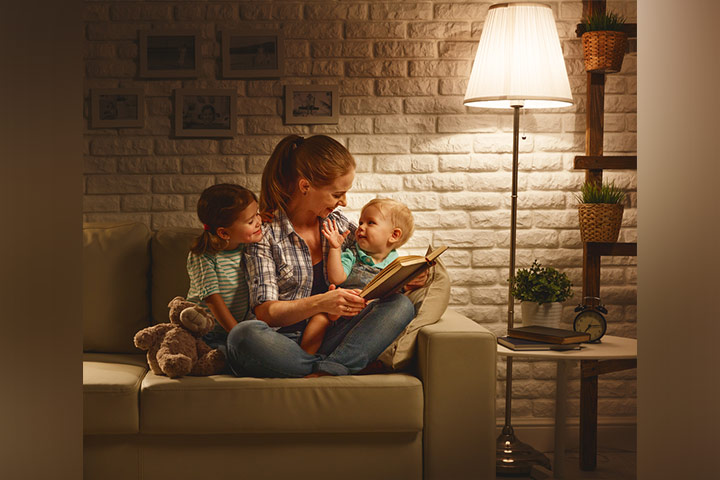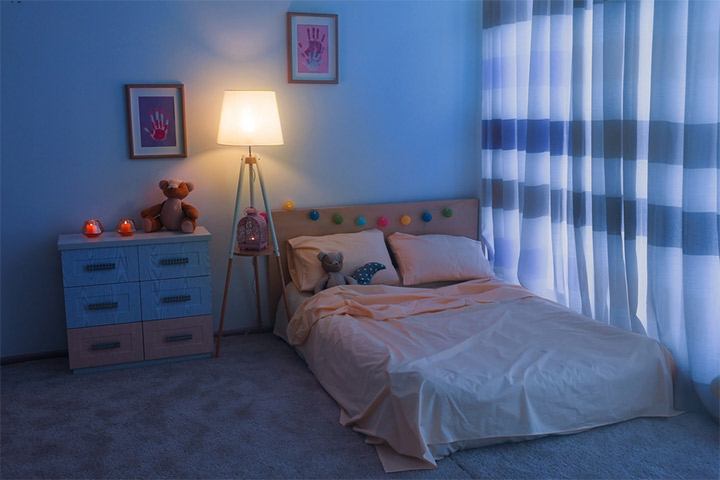
Image: Shutterstock
Sleep plays a vital role in our lives. It is essential for our physical and mental well being. Studies say that children who get adequate sleep have improved attention, behavior, grasping ability, and memory. Whereas lack of sleep can lead to obesity, high blood pressure, and even depression (1). The American Academy of Pediatrics recommends that children get a minimum of 8-10 hours of sleep on average every night. But it’s not very easy to put kids down to sleep or get them to remain asleep. They mighthavetrouble following a healthy bedtime routine, which is essential for every kid. Here are 5 tips to ensure that your child establishes a healthy sleep routine:
1. Relaxation Before Hitting The Sack
Your children spend all day running around and filled with energy. It might not be easy to expect them to calm down all of a sudden for their bedtime when they are still pumped with energy. Therefore, practice a bedtime routine with your kids and make sure they do it every night. Incorporate a series of activities that will relax them and get them ready to sleep, physically and mentally. They could take a warm bath, listen to music that calms them, or read a little something.
2. Avoid Screen Time
Due to the current pandemic situation, schools and colleges have adopted virtual classes that require children to spend a lot of time in front of a screen, be it a computer, smartphone, or tablet. Ensure your kids do not spend too much time in front of the screen after their classes are done. Regulate their screen time and avoid it one hour before bedtime. Screens are one of the main culprits of poor sleep quality as they emit blue light (2).
3. Dim The Lights
If you canturnthe lightsoff during bedtime, it’s the best way to sleep. But some kids might be scared of complete darkness. Therefore, you could fix a night light in your kid’s room and leave that on for them. Dim lights produce the sleep hormone melatonin, which enhances sleep quality (3). Even the color of the lightbulb in your room affects your ability to sleep. Blue and violet light delay your sleep significantly compared to green lights (4).
4. Ambiance Of The Bedroom
Your kids might like funky things and bright colored walls. But for a good night’s sleep, it is recommended that their rooms be quiet, dark, and tidy. To ensure that your child gets a good night’s rest, make their rooms well ventilated. You could also add in some thick, dark-colored curtains to block out the light from outside. If you live in an area that generates a lot of noise from the outside, get your child a pair of earplugs.
5. Set A Consistent Time
Establish a consistent routine for when your child goes to bed, and when they wake up. Set a time and make sure they follow it. If your kids are very young, do not leave any screens, video games, or other such things that could distract them in their rooms at night. Establish a consistent time when your kids have to wake up every morning. By doing this, a sleep pattern is maintained, which makes it easier for kids to follow.
We often hear the phrase, “sleep is for the weak”, but truth be told, lack of sleep makes you weak, and sleep makes you healthy, both physically and emotionally. Not just for kids, but for adults too, the adequate amount of sleep is a part of a healthy lifestyle, and neglecting it causes unnecessary complications. How many hours do you sleep every night? Comment below and let us know.

















